Central Auckland, East Auckland, North Auckland, South Auckland, West Auckland > Private Hospitals & Specialists >
Auckland Breast Centre
Private Service, Breast, Radiology
Auckland Breast Centre provides mammography, ultrasound, biopsy and specialist breast appointments. Our surgeons are available to operate on patients with breast cancer at our 209 Shakespeare Rd clinic in Milford.
We are a team of dedicated professionals including Radiologists and Surgeons supported by a highly trained clinical and administration team all committed to providing the highest quailty of healthcare to our patients.
Today
8:00 AM to 5:00 PM.
Description
Our team is dedicated to providing exceptional care that supports you and your whānau every step of the way at either our flagship clinic at 209 Shakepeare Rd or our brand new clinic at 50 Greville Rd.
Both clinics offer full-service breast imaging with tomosynthesis and ultrasound, along with same day consultation services.
The team offers not only digital imaging, but a comprehensive ‘one stop shop’ for all breast conditions. This includes a multidisciplinary team providing:
- 3D Breast Tomosynthesis
- Screening and diagnostic digital mammography
- Interventional biopsy service
- Breast MRI
- Sentinel lymph node mapping
- Advice on benign breast conditions and lactation problems
- Comprehensive breast cancer management
- Specialist oncoplastic breast surgeons
- Specialist plastic surgeons
- Regular multidisciplinary meetings to discuss optimum patient management
- Lymphoedema specialist and garment fitting
- Family history assessment
We welcome you to ABC and look forward to providing the highest quality & tailored care.
Consultants
Note: Please note below that some people are not available at all locations.
-
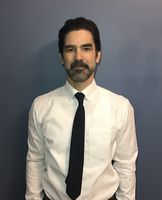
Dr David Anderson
Radiation Oncologist
Available at 209 Shakespeare Road, Milford, Auckland
-

Dr Mike Baker
Radiologist
Available at all locations.
-

Dr Antonet De La Rey
Radiologist
Available at all locations.
-
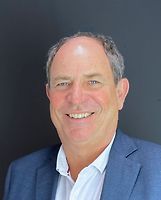
Mr Richard Harman
Breast and General Surgeon
Available at 209 Shakespeare Road, Milford, Auckland
-
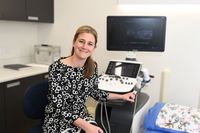
Dr Jeanie Jennings
Radiologist
Available at all locations.
-
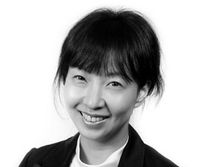
Dr Helen Jo
Radiologist
Available at 209 Shakespeare Road, Milford, Auckland
-

Dr Sandhya Pillai
Breast Surgeon
Available at 209 Shakespeare Road, Milford, Auckland
-

Dr Michael Russell
Oncoplastic Surgeon
Available at all locations.
-
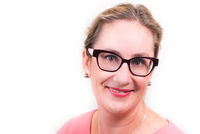
Ms Meredith Simcock
Plastic Surgeon
Available at 209 Shakespeare Road, Milford, Auckland
-

Dr Rita Yang
Plastic Surgeon
Available at all locations.
Referral Expectations
Self-referral and GP referrals accepted.
Self-referrers can connect with us using our online referral form.
Hours
8:00 AM to 5:00 PM.
| Mon – Fri | 8:00 AM – 5:00 PM |
|---|
Procedures / Treatments
Mammography is radiography or x-ray of the breast. Click here to read more.
Mammography is radiography or x-ray of the breast. Click here to read more.
Mammography is radiography or x-ray of the breast. Click here to read more.
Three-dimensional (3D) mammography, also known as breast tomosynthesis, is a type of digital mammography in which x-ray machines are used to take pictures of thin slices of the breast from different angles and computer software is used to reconstruct an image. This process is similar to how a computed tomography (CT) scanner produces images of structures inside of the body. Click here to read more
Three-dimensional (3D) mammography, also known as breast tomosynthesis, is a type of digital mammography in which x-ray machines are used to take pictures of thin slices of the breast from different angles and computer software is used to reconstruct an image. This process is similar to how a computed tomography (CT) scanner produces images of structures inside of the body. Click here to read more
Service types: Breast imaging (mammogram with tomography, breast ultrasound, MRI).
Three-dimensional (3D) mammography, also known as breast tomosynthesis, is a type of digital mammography in which x-ray machines are used to take pictures of thin slices of the breast from different angles and computer software is used to reconstruct an image. This process is similar to how a computed tomography (CT) scanner produces images of structures inside of the body.
For most patients a mammogram is sufficient to examine the breast tissue, however an ultrasound examination may be needed to examine particularly dense breast tissue or give more information of an area identified on a mammogram. Click here to read more
For most patients a mammogram is sufficient to examine the breast tissue, however an ultrasound examination may be needed to examine particularly dense breast tissue or give more information of an area identified on a mammogram. Click here to read more
For most patients a mammogram is sufficient to examine the breast tissue, however an ultrasound examination may be needed to examine particularly dense breast tissue or give more information of an area identified on a mammogram.
Also known as ultrasound biopsy or ultrasound-guided injection, ultrasound-guided breast biopsy is an accurate way to take samples of tissue from within the breast that are visible on ultrasound but may not be able to be felt by you or your doctor. The procedure prevents the need to surgically remove tissue and eliminates the radiation exposure that comes from using x-rays to locate the area of concern. Click here to read more
Also known as ultrasound biopsy or ultrasound-guided injection, ultrasound-guided breast biopsy is an accurate way to take samples of tissue from within the breast that are visible on ultrasound but may not be able to be felt by you or your doctor. The procedure prevents the need to surgically remove tissue and eliminates the radiation exposure that comes from using x-rays to locate the area of concern. Click here to read more
Service types: Breast imaging (mammogram with tomography, breast ultrasound, MRI), Breast biopsy.
Also known as ultrasound biopsy or ultrasound-guided injection, ultrasound-guided breast biopsy is an accurate way to take samples of tissue from within the breast that are visible on ultrasound but may not be able to be felt by you or your doctor.
The procedure prevents the need to surgically remove tissue and eliminates the radiation exposure that comes from using x-rays to locate the area of concern.
A radiologist places a very fine wire marker into the breast to localise (or mark) a specific area of the breast that was identified as needing further investigation on your mammogram. Click here to read more
A radiologist places a very fine wire marker into the breast to localise (or mark) a specific area of the breast that was identified as needing further investigation on your mammogram. Click here to read more
Service types: Breast imaging (mammogram with tomography, breast ultrasound, MRI), Breast biopsy.
A radiologist places a very fine wire marker into the breast to localise (or mark) a specific area of the breast that was identified as needing further investigation on your mammogram.
Partial mastectomy (sometimes called lumpectomy) is a breast-conserving operation in which the surgeon removes the tumour together with some of the healthy breast tissue surrounding it. Women who have this surgery usually: Have a single breast cancer less than 3cm in diameter Have enough breast tissue so that removing surrounding tissue would not leave a misshapen breast, and are medically able to undergo surgery and follow-up radiation therapy. Click here to read more
Partial mastectomy (sometimes called lumpectomy) is a breast-conserving operation in which the surgeon removes the tumour together with some of the healthy breast tissue surrounding it. Women who have this surgery usually: Have a single breast cancer less than 3cm in diameter Have enough breast tissue so that removing surrounding tissue would not leave a misshapen breast, and are medically able to undergo surgery and follow-up radiation therapy. Click here to read more
Service types: Breast cancer surgery (mastectomy).
Partial mastectomy (sometimes called lumpectomy) is a breast-conserving operation in which the surgeon removes the tumour together with some of the healthy breast tissue surrounding it.
Women who have this surgery usually:
- Have a single breast cancer less than 3cm in diameter
- Have enough breast tissue so that removing surrounding tissue would not leave a misshapen breast, and are medically able to undergo surgery and follow-up radiation therapy.
A mastectomy is an operation that removes the entire breast, and is the treatment of choice for larger tumours or multiple tumours. It is also needed for women in whom it is not safe to have a partial mastectomy, because there is extensive cancer. Click here to read more
A mastectomy is an operation that removes the entire breast, and is the treatment of choice for larger tumours or multiple tumours. It is also needed for women in whom it is not safe to have a partial mastectomy, because there is extensive cancer. Click here to read more
A mastectomy is an operation that removes the entire breast, and is the treatment of choice for larger tumours or multiple tumours. It is also needed for women in whom it is not safe to have a partial mastectomy, because there is extensive cancer.
Breast cancer surgery is always accompanied by an examination of one or more of the lymph nodes in the armpit, sometimes referred to as the axilla. If cancer spreads from the breast, it travels to these “sentinel” lymph nodes first, and we can remove these affected nodes. Knowing if the cancer has spread also helps us to stage it (find out how much cancer there is in the body and where it is located), advise on further treatment and determine your prognosis. Click here to read more
Breast cancer surgery is always accompanied by an examination of one or more of the lymph nodes in the armpit, sometimes referred to as the axilla. If cancer spreads from the breast, it travels to these “sentinel” lymph nodes first, and we can remove these affected nodes. Knowing if the cancer has spread also helps us to stage it (find out how much cancer there is in the body and where it is located), advise on further treatment and determine your prognosis. Click here to read more
Breast cancer surgery is always accompanied by an examination of one or more of the lymph nodes in the armpit, sometimes referred to as the axilla. If cancer spreads from the breast, it travels to these “sentinel” lymph nodes first, and we can remove these affected nodes.
Knowing if the cancer has spread also helps us to stage it (find out how much cancer there is in the body and where it is located), advise on further treatment and determine your prognosis.
With a rise in the need for breast cancer surgery, the frequency of breast reconstructive surgery has also increased. The aim of the procedure is to recreate the natural contour of a woman’s breast, by using artificial implants or their own body tissue to make a breast mound and nipple. Your surgeon will discuss which method is best for you, and this usually depends on your general health, the size and shape of your breast and the availability of your own tissues for use in reconstruction. Often, more than one surgical procedure is required. Click here to read more
With a rise in the need for breast cancer surgery, the frequency of breast reconstructive surgery has also increased. The aim of the procedure is to recreate the natural contour of a woman’s breast, by using artificial implants or their own body tissue to make a breast mound and nipple. Your surgeon will discuss which method is best for you, and this usually depends on your general health, the size and shape of your breast and the availability of your own tissues for use in reconstruction. Often, more than one surgical procedure is required. Click here to read more
With a rise in the need for breast cancer surgery, the frequency of breast reconstructive surgery has also increased. The aim of the procedure is to recreate the natural contour of a woman’s breast, by using artificial implants or their own body tissue to make a breast mound and nipple. Your surgeon will discuss which method is best for you, and this usually depends on your general health, the size and shape of your breast and the availability of your own tissues for use in reconstruction. Often, more than one surgical procedure is required.
Breast reduction is usually performed to improve the physical and/or psychological symptoms associated with enlarged breasts, and is carried out after the breasts are fully developed, usually when a woman has reached the age of 18. The aim of breast reduction surgery is to reduce the size of the breasts and to create a better shape in proportion to the woman's body. Click here to read more
Breast reduction is usually performed to improve the physical and/or psychological symptoms associated with enlarged breasts, and is carried out after the breasts are fully developed, usually when a woman has reached the age of 18. The aim of breast reduction surgery is to reduce the size of the breasts and to create a better shape in proportion to the woman's body. Click here to read more
Breast reduction is usually performed to improve the physical and/or psychological symptoms associated with enlarged breasts, and is carried out after the breasts are fully developed, usually when a woman has reached the age of 18. The aim of breast reduction surgery is to reduce the size of the breasts and to create a better shape in proportion to the woman's body.
Breast augmentation is a procedure to enhance the size and shape of a woman’s breasts. It involves inserting an implant underneath the breast. The best candidates for breast augmentation are physically healthy women looking for improvement in the way they look and are realistic in their expectations. Click here to read more
Breast augmentation is a procedure to enhance the size and shape of a woman’s breasts. It involves inserting an implant underneath the breast. The best candidates for breast augmentation are physically healthy women looking for improvement in the way they look and are realistic in their expectations. Click here to read more
Breast augmentation is a procedure to enhance the size and shape of a woman’s breasts. It involves inserting an implant underneath the breast.
The best candidates for breast augmentation are physically healthy women looking for improvement in the way they look and are realistic in their expectations.
Mastopexy is an operation that improves the shape and position of the breast on the chest wall. Click here to read more
Mastopexy is an operation that improves the shape and position of the breast on the chest wall. Click here to read more
Mastopexy is an operation that improves the shape and position of the breast on the chest wall.
MRI combines the use of a very strong magnet, radio waves and a computer system to provide detailed images of internal structures and soft tissue structures. The level of detail seen with an MRI is extraordinary compared with any other imaging modality. Click here to read more
MRI combines the use of a very strong magnet, radio waves and a computer system to provide detailed images of internal structures and soft tissue structures. The level of detail seen with an MRI is extraordinary compared with any other imaging modality. Click here to read more
MRI combines the use of a very strong magnet, radio waves and a computer system to provide detailed images of internal structures and soft tissue structures. The level of detail seen with an MRI is extraordinary compared with any other imaging modality.
Special pictures of the inside of the breast are taken to check for any problems. It can include mammograms, tomosynthesis (3D mammograms), ultrasounds, and magnetic resonance imaging (MRI).
Special pictures of the inside of the breast are taken to check for any problems. It can include mammograms, tomosynthesis (3D mammograms), ultrasounds, and magnetic resonance imaging (MRI).
Special pictures of the inside of the breast are taken to check for any problems. It can include mammograms, tomosynthesis (3D mammograms), ultrasounds, and magnetic resonance imaging (MRI).
Online Booking URL
Public Transport
The Auckland Transport website is a good resource to plan your public transport options.
Parking
On-site parking.
Website
Contact Details
209 Shakespeare Road, Milford, Auckland
North Auckland
8:00 AM to 5:00 PM.
-
Phone
(09) 488 9179
Healthlink EDI
abreastc
Email
Website
50 Greville Road, Pinehill, Auckland
North Auckland
8:00 AM to 5:00 PM.
-
Phone
(09) 488 9179
Healthlink EDI
abreastc
Email
Website
Was this page helpful?
This page was last updated at 2:57PM on February 12, 2026. This information is reviewed and edited by Auckland Breast Centre.

